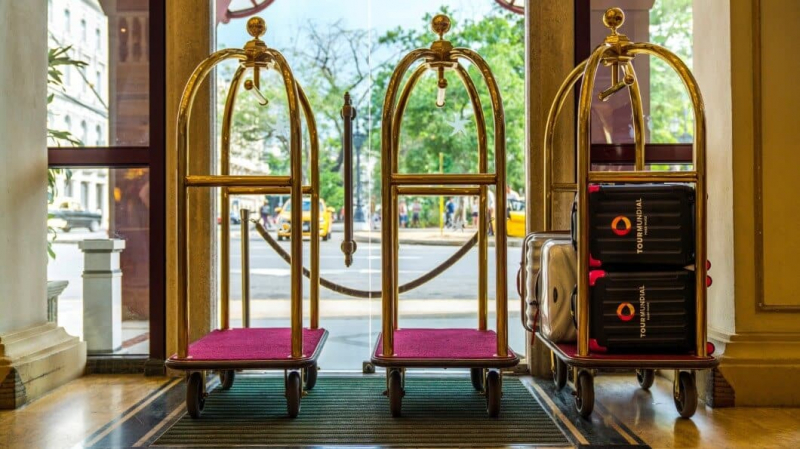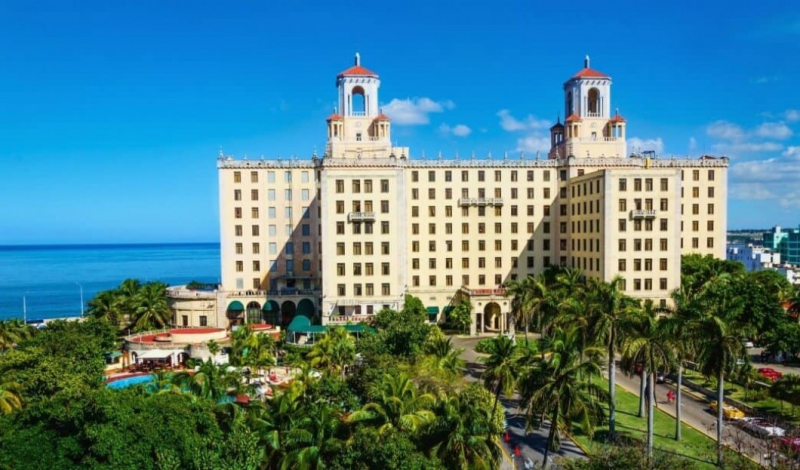For Cuba’s tourism sector, which has been struggling recently, a significant shift is underway: the government has approved a new policy that allows international hotel chains to lease properties owned by the state.
The announcement comes as the country faces growing economic difficulties. The goal is to revitalize the tourism sector, which has suffered due to bureaucracy and the effects of the pandemic. Iberostar, a major Spanish company, is leading the way. Starting on January 1, 2026, they will fully rent and manage the Iberostar Origin Laguna Azul in Varadero. This pilot program has the potential to change Cuba’s planned tourism approach.
In the past, the Ministry of Tourism and GAESA, a conglomerate run by the military, had tight control over tourism infrastructure. Foreign companies could manage state hotels, but the state closely monitored investments, staffing, menus, and salaries. Now, the new rental system, led by Prime Minister Manuel Marrero (who was previously the tourism minister), aims to ease these restrictions, giving companies more independence to boost efficiency and attract visitors.
A Desperate Bid Amid Crisis
Cuba’s economy is struggling with ongoing shortages, rising inflation, and a lack of foreign currency, which makes it difficult to import essential items like food and fuel. Tourism, along with medical exports and remittances, is a crucial source of income, but it hasn’t yet recovered from the impact of COVID-19. Before the pandemic, in 2018, Cuba welcomed 4.7 million tourists. However, projections for 2025 are only around 1.8 million, a significant decrease from 2024 and far below previous levels.
To address these challenges, the government is implementing pragmatic reforms. By leasing facilities, the state hopes to ensure a steady flow of foreign currency, while giving hotel chains more operational freedom to improve service. According to reports from EFE, a Spanish news agency, initial pilot projects will be evaluated before a wider implementation, and terms will be negotiated individually without a standard framework.
Click here to preview your posts with PRO themes ››
Giving Power to Operators, While Keeping Ownership
This change is a major shift for global companies. They can now directly hire staff, offer competitive salaries, and make daily decisions, which is very different from the previous system of paying state-mandated salaries in Cuban pesos that have lost value due to inflation. As representatives from the involved companies noted, “This modernization provides the planning certainty and market-driven flexibility that we have long been seeking.”
Importantly, the state retains ownership of the properties, maintaining Cuba’s socialist principles while giving up some control over operations. Earlier this year, letters of intent were signed with Chinese partners for the Copacabana complex in Havana, indicating further progress. Although lease rates haven’t been disclosed, this customized approach reflects Cuba’s specific diplomatic strategy.

Dealing with Competition and Skepticism
Some observers view this as a cautious step towards integrating market incentives into a centrally controlled economy, without completely abandoning core controls. However, some doubts persist: Will these new freedoms last despite potential bureaucratic resistance? And will it truly improve Cuba’s tourism industry, which has been affected by poor service and low occupancy rates in recent years?
The Caribbean tourism market is highly competitive, with popular destinations like Cancún in Mexico and Punta Cana in the Dominican Republic experiencing strong recoveries. Cuba, on the other hand, faces challenges such as U.S. sanctions, power outages, and bureaucratic obstacles that discourage many travelers.
This hotel-leasing strategy represents a pragmatic shift for Cuba, within the boundaries of its ideology. If successful, it could extend beyond tourism, providing a model for hybrid reforms in other struggling sectors. As the inviting waters of Varadero beckon, Cuba hopes that foreign expertise can revive the tropical appeal of this revolutionary island, one leased hotel at a time.


